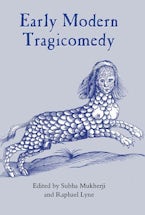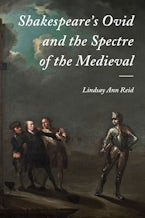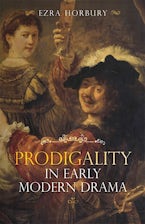
Title Details
288 Pages
21.6 x 13.8 cm
Series: Studies in Renaissance Literature
Series Vol. Number:
37
Imprint: D.S.Brewer
Prodigality in Early Modern Drama
- Description
- Contents
- Author
- Reviews
Examination of the motif of the prodigal son as treated in early modern drama, from Shakespeare to Beaumont and Fletcher.
Why is it bad to spend too much money? In early modern England, the concept of prodigality governed all forms of financial excess and misuse, from gambling away your family estate to buying too much food. To be prodigal was not only to lack self-discipline but to be immorally excessive. Prodigals were foolish, reckless, and sinful, but their lives were also ones of excitement, lust, luxury, and intrigue. Ambivalently positioned between conservative financial ideals and increasingly popular economic indulgences, prodigals embodied a nation's anxieties about the advent of early capitalism.
This book analyses the prodigal youth archetype in early modern drama, examining plays byShakespeare, Middleton, Jonson, Randolph, Chapman, Marston, Beaumont and Fletcher, Davenport, Gascoigne, Heywood, as well as anonymous works and morality plays. The theatres, which were so often criticised for financial excess, became the perfect setting for the rebellious exploits of prodigal youths, and their rises and falls were dramatised with increasing glamorisation between 1500 and 1642. By discussing humanist education practices, Aristotelian ethics, urban change, cuckoldry, usury, and sex work, the author offers the first examination of prodigality and the ways in which England at first condemned, then tolerated, and then eventually came to celebrate excessive spending.
EZRA HORBURY is Lecturer in Renaissance/Early Modern Literature at the University of York.
Why is it bad to spend too much money? In early modern England, the concept of prodigality governed all forms of financial excess and misuse, from gambling away your family estate to buying too much food. To be prodigal was not only to lack self-discipline but to be immorally excessive. Prodigals were foolish, reckless, and sinful, but their lives were also ones of excitement, lust, luxury, and intrigue. Ambivalently positioned between conservative financial ideals and increasingly popular economic indulgences, prodigals embodied a nation's anxieties about the advent of early capitalism.
This book analyses the prodigal youth archetype in early modern drama, examining plays byShakespeare, Middleton, Jonson, Randolph, Chapman, Marston, Beaumont and Fletcher, Davenport, Gascoigne, Heywood, as well as anonymous works and morality plays. The theatres, which were so often criticised for financial excess, became the perfect setting for the rebellious exploits of prodigal youths, and their rises and falls were dramatised with increasing glamorisation between 1500 and 1642. By discussing humanist education practices, Aristotelian ethics, urban change, cuckoldry, usury, and sex work, the author offers the first examination of prodigality and the ways in which England at first condemned, then tolerated, and then eventually came to celebrate excessive spending.
EZRA HORBURY is Lecturer in Renaissance/Early Modern Literature at the University of York.
Introduction
Sparing the Rod and Hating the Son: Early Plays, 1513-1588
The sacred wholsome lore: Aristotle and Prodigality
London Prodigals: Spending in the City
Fathers of Destruction: The Villainous Usurer
Wasted Goods, Wasted Flesh: The Prodigal's Harlots and Mother Bawds
Coda
Bibliography
Sparing the Rod and Hating the Son: Early Plays, 1513-1588
The sacred wholsome lore: Aristotle and Prodigality
London Prodigals: Spending in the City
Fathers of Destruction: The Villainous Usurer
Wasted Goods, Wasted Flesh: The Prodigal's Harlots and Mother Bawds
Coda
Bibliography
"They are illuminating on the social, ethical, and economic background of the ways in which prodigality was depicted on stage, and they offer detailed responses to some of the key figures within this tradition, such as city prodigals, usurers, harlots, and bawds." SEL
"Horbury's analyses are excellent, the book's integration of a wide variety of critical perspectives is extremely impressive, and its contribution to literary studies is significant. [...] Prodigality in Early Modern Drama generates a series of important and useful perspectives on the limitations of this thinking [economic austerity as fundamentally virtuous], and gestures in the direction of models of liberal - and perhaps "escessive" - spending that describe very different and more outward-looking systems of virtue." Renaissance and Reformation / Renaissance et Réforme
Hardcover
9781843845423
September 2019
£80.00 / $115.00
Ebook (EPDF)
9781787446069
September 2019
$29.95 / £24.99
Title Details
288 Pages
2.16 x 1.38 cm
Series: Studies in Renaissance Literature
Series Vol. Number:
37
Imprint: D.S.Brewer












